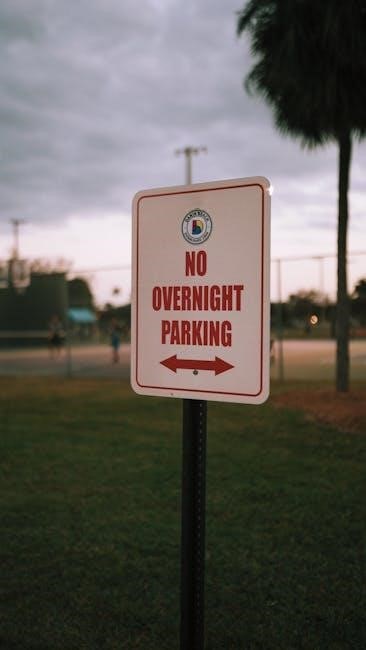bananagrams rules pdf
Bananagrams is a fast-paced, portable word game ideal for all ages, combining elements of Scrabble and Boggle. Its official PDF guide provides concise, easy-to-follow rules for quick setup and play.
Overview of the Game
Bananagrams is a dynamic and engaging word game where players compete to create interconnected words using letter tiles. Unlike Scrabble, it doesn’t require a board, allowing for flexible gameplay. The goal is to be the first to use all your tiles and shout “Bananas!” to win. Its portability, simplicity, and quick rounds make it ideal for all ages. The official Bananagrams PDF provides a concise guide, ensuring easy setup and play, while its versatility allows for solo or group challenges, making it a fun and accessible word-building experience.
Why Bananagrams is Popular
Bananagrams’ portability, simplicity, and fast-paced nature make it a beloved game. Its lack of complex rules and quick setup appeal to players of all ages. The ability to play anywhere, without a board, adds to its charm. Its versatility in supporting solo, two-player, or group games makes it a favorite for various social settings. The thrill of racing to use all tiles and the joy of word-building contribute to its addictive nature, making it a go-to choice for family fun and casual competition. Its inexpensive and easy-to-learn design further enhances its popularity.
Basic Rules of Bananagrams
Bananagrams is a fast-paced word game where players race to create interconnected word grids. The goal is to be the first to use all your tiles and shout ‘Bananas!’ Fun for all ages, the official PDF provides quick setup and rules for easy gameplay.
Starting the Game
To begin, any player calls “SPLIT!” and flips their tiles faceup. Each player takes 21 tiles for 2-4 players or 15 tiles for 5-6 players. The objective is to arrange your tiles into a crossword-style grid. Words must intersect horizontally or vertically, and proper spelling is required. Players work independently without taking turns. The game is flexible, as the grid can expand as needed. Unlike Scrabble, there’s no fixed board size. The goal is to be the first to use all your tiles and shout “BANANAS!” to win. The game is portable and easy to start anywhere, making it a great option for quick, fun word-building challenges.
Arranging Tiles
Players arrange their tiles into a crossword-style grid, building words horizontally or vertically. Each word must intersect with others, forming a connected pattern. Unlike Scrabble, there’s no fixed board size, so the grid can expand as needed. Words must be at least two letters long, but longer words are encouraged. Proper spelling is essential, and all tiles must be used without leftover letters. The goal is to create a cohesive word network, ensuring each new word connects to existing ones. This flexible arrangement allows for creative and strategic play, making each game unique and engaging.
Special Calls: Peel and Bananas
During gameplay, players can make two special calls: “Peel” and “Bananas.” When a player uses all their original tiles, they shout “Peel” and take an additional tile from the bunch. This action forces all other players to also draw a tile, intensifying the game’s pace. The game ends when a player uses all their tiles and calls “Bananas!” declaring their victory. These calls add excitement and structure, ensuring the game remains fast-paced and competitive while encouraging strategic thinking and quick word-building skills. They are central to maintaining the game’s dynamic flow.

Variations in Gameplay
Bananagrams offers adaptable play options, including two-player games, solo challenges, and house rules. Players can modify rules to suit preferences, enhancing replayability and fun for all skill levels.
Two-Player Games
In a two-player game of Bananagrams, the setup remains similar, but with adjustments for fewer participants. Each player takes 15 tiles instead of 21, and the game proceeds with the same rapid word-building mechanics. The first player to use all their tiles and call out “Bananas!” wins. Unlike larger groups, there is no peeling in two-player games, making the game faster and more competitive. Players can also agree on house rules to add extra challenges, ensuring the game remains engaging and fun for both participants.
Solo Play: Banana Solitaire
Banana Solitaire is a one-player version of Bananagrams, perfect for self-play. The goal is to use all 144 tiles to create a connected word grid. Unlike multiplayer, there is no peeling unless necessary. Players can challenge themselves by either beating their best time or using the fewest words. This solo mode is an excellent way to practice and enhance Bananagrams skills in a relaxed setting, as players can focus on word-building strategies without competition.
Handling Invalid Words
Invalid words not following pre-set rules can be challenged. If a player uses an unacceptable word, others call out “Rotten Bananas,” disqualifying the offending player immediately.
Rotten Bananas Rule
If a player uses invalid or unacceptable words, others call out “Rotten Bananas,” immediately disqualifying the offender. Their tiles are returned to the face-down pile, and the game continues without them. This rule ensures fair play and maintains the game’s integrity, as it penalizes those who break the agreed-upon word rules. The challenge must be made promptly, and the disqualified player is out of the game. This rule keeps the game moving and prevents delays caused by invalid word placements.

Scoring System
Bananagrams has no scoring system. The goal is to be the first player to use all your tiles. Speed and efficiency determine the winner.
Winning the Game
To win at Bananagrams, a player must be the first to use all their letter tiles in a valid word grid. The game concludes when a player successfully arranges their tiles into interconnected words, similar to a crossword puzzle, and calls out “Bananas!” This signals the end of the game, and that player is declared the winner. The absence of a scoring system emphasizes speed and efficiency, making the game fast-paced and exciting for all participants. The official rules, detailed in the Bananagrams PDF, ensure clarity and fair play, allowing players of all ages to enjoy this engaging word game.

House Rules and Customizations
Players can personalize Bananagrams by introducing unique twists, such as time limits or themed words, enhancing gameplay creativity. These customizations keep the game fresh and exciting for repeat players while maintaining its core appeal. The official PDF rules offer a foundation, but house rules allow for endless variations, making each session unique and tailored to the group’s preferences.
Alternative Game Modes
Bananagrams offers various alternative game modes to enhance play. Time challenges test speed, while themed rounds focus on specific categories like countries or animals. For competitive fun, players can adopt a “Best Of” series, determining a winner over multiple rounds. Banana Solitaire allows solo play, challenging individuals to use all tiles efficiently. These modes add diversity, keeping the game dynamic and engaging for all players. They cater to different preferences, ensuring endless enjoyment and unique experiences each time the game is played.
Time Challenges
Time challenges in Bananagrams add an exciting layer of urgency. Players race against the clock to arrange tiles into valid words, fostering quick thinking and strategic planning. For solo play, the goal is to use all 144 tiles as fast as possible, while in group settings, speed rounds determine the fastest word-builder. This mode sharpens reflexes and enhances vocabulary skills, making it a thrilling way to improve gameplay and compete with others or oneself for personal best times and records.

Resources for Learning
The official Bananagrams Rules PDF provides a concise, one-page guide for understanding gameplay, setup, and rules. It’s perfect for teaching others or refreshing your knowledge quickly and easily.
Official Bananagrams PDF
The official Bananagrams PDF is a comprehensive yet concise guide that outlines the game’s rules, setup, and objectives. It covers topics such as starting the game, arranging tiles, and special calls like “Peel” and “Bananas.” The PDF also addresses handling invalid words through the “Rotten Bananas” rule and provides insights into scoring and winning the game. Perfect for new players, this document ensures everyone understands the gameplay quickly. It’s available for download and serves as a handy reference for both beginners and experienced players alike, making it an essential resource for anyone looking to master Bananagrams.
Common Questions
Players often ask about rules, tile arrangements, and valid words. The official Bananagrams PDF answers these queries, providing clarity on gameplay and resolving disputes quickly.
Frequently Asked Questions
Players often wonder about valid words, with questions like, “Do I need to know the word’s meaning?” The answer is no—correct spelling suffices. Another common query is about the “Peel” and “Bananas” calls, which signal tile replenishment and winning, respectively. Questions also arise about solo play, two-player rules, and handling errors. The official PDF clarifies these points, ensuring smooth gameplay and resolving disputes. It also addresses tile distribution, grid formation, and scoring, making it an essential resource for both new and experienced players.
Bananagrams offers a fun, fast-paced experience for players of all ages, blending word-building excitement with portability. Its simple rules and quick setup make it ideal for families, schools, and casual gatherings. The official PDF guide provides clear instructions, ensuring everyone can learn and enjoy the game. Whether playing solo, with friends, or in large groups, Bananagrams promotes mental sharpness and vocabulary growth. Grab the Bananagrams pouch, download the rules, and dive into a world of word-based adventure that’s as addictive as it is rewarding!












Leave a Comment